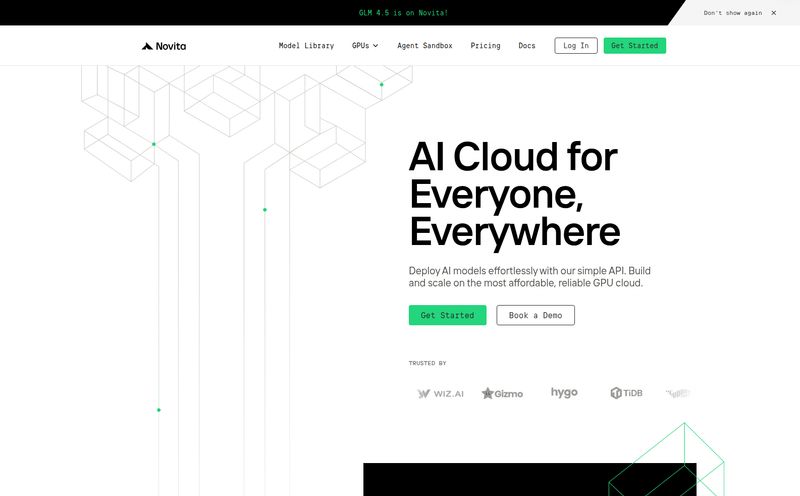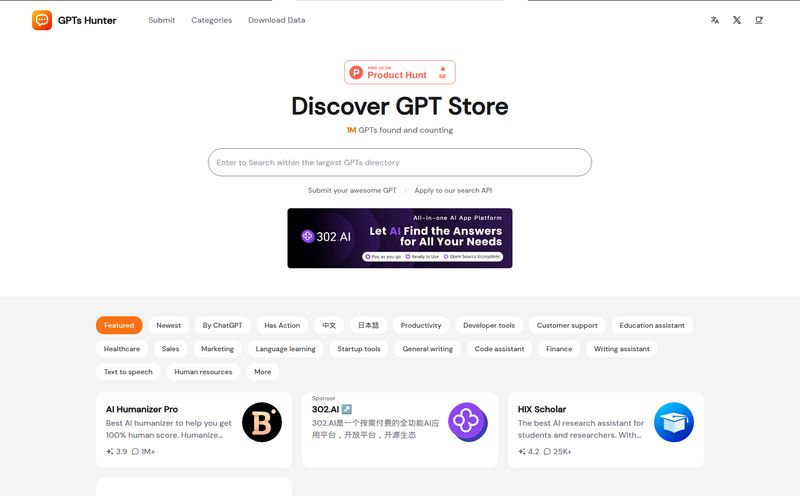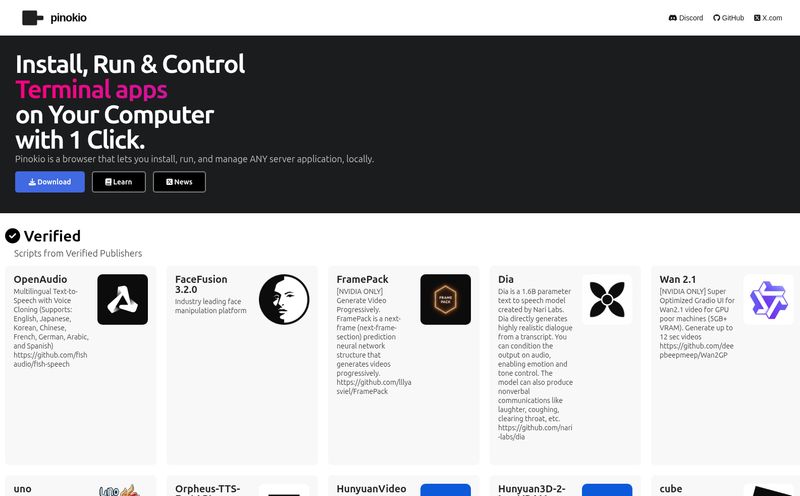Legal documents are a pain. A necessary, iron-clad, super important pain, but a pain nonetheless. As someone who's spent more hours than I care to admit squinting at service agreements and partnership contracts, my eyes just... glaze over. It's a wall of text designed by lawyers, for lawyers. For the rest of us, it's a jungle of jargon.
So, when a new tool pops up promising to tame that jungle, my ears perk up. The tool in question is Legalysis.co. I stumbled across it recently, and my first impression was... well, minimalist doesn't even begin to cover it. The homepage is basically a blank slate. Seriously. I thought my ad blocker was going haywire. But what's lurking behind that spartan exterior is what really got my gears turning.
So What is Legalysis, Anyway?
At its heart, Legalysis is an AI-powered platform built to do two things, but to do them really well: analyze and summarize legal documents. Think of it as a translator. It takes that dense, impenetrable legalese and converts it into something a normal human can actually understand. It's built on advanced Large Language Models (LLMs)—the same kind of brainpower behind tools like ChatGPT—but trained specifically for the complex world of legal text.
Its goal isn't just to make things shorter; it's to make them clearer. It's designed to be a second set of eyes, or maybe a first pass for folks who don't have a legal department on speed dial. For law firms and corporate legal teams, it’s pitched as a way to blast through the initial grunt work of document review.

Visit Legalysis
The Core Features That Actually Matter
Instead of a laundry list of features nobody uses, Legalysis seems focused on the big wins. The stuff that saves time and prevents headaches.
AI-Powered Document Analysis and Risk Detection
This is the main event. You feed Legalysis a contract, and its AI gets to work. It’s not just looking for keywords; it’s reading for context. The platform claims it can pinpoint potential risks, ambiguous language, and clauses that might come back to bite you. What I found particularly interesting is its ability to identify jurisdiction-specific issues. That’s a huge deal. A contract that’s perfectly fine in California might have a major compliance problem in Texas or New York. An AI that knows the difference? That’s not just smart; it's essential.
Summaries That Don't Suck
Let's be honest, we've all tried to get an AI to summarize something, and it often spits out a jumbled, soulless paragraph. Legalysis aims higher. Its promise is to distill a monstrous, 50-page document down into a concise, one-page summary. It pulls out the critical pieces—the obligations, the liabilities, the deadlines—and presents them in plain English. For a small business owner, that's gold. For a busy attorney, it’s a massive time-saver, letting them focus on high-level strategy instead of getting bogged down in the weeds.
The Good, The Bad, and The AI
No tool is perfect, right? Especially in the fast-moving world of AI. After digging into what Legalysis offers, here’s my take.
The Big Advantages I See
The upsides are pretty clear. The sheer speed is a game-changer. What would take a human hours can be done in minutes. This frees up so much time for more strategic work. The clarity it offers to non-legal professionals is probably its biggest selling point. It bridges that gap between needing to understand a contract and not having a law degree. And because it's using advanced AI, the risk detection is likely more sophisticated than a simple CTRL+F search for scary words like "indemnify" or "terminate".
A Few Words of Caution
Now for the reality check. And this applies to any AI legal tool, not just Legalysis. An AI is a tool, not a replacement for a qualified human lawyer. I’ve seen AI miss subtle nuances that a seasoned attorney would spot in a heartbeat. It might not grasp the full business context or the strategic intent behind a strangely worded clause. Relying on it 100% without human oversight is a recipe for trouble. Think of it as an incredibly smart and fast paralegal, but one that still needs a manager to sign off on the final work. It's an assistant, not the boss.
The Million-Dollar Question: What Does Legalysis Cost?
Here’s where the mystery deepens. If you try to find a pricing page on their site… you can’t. It seems to be locked down or just plain non-existent. I even tried a few URL tricks to find it, but no dice. Access denied.
What does this mean? In my experience, this usually points to one of a few things:
- Enterprise-Focus: They are targeting large firms and corporations with custom, high-ticket pricing. They want you on a sales call, not clicking a “Buy Now” button.
- Early Stage/Beta: The product might still be in a private beta, with pricing being worked out with early adopters.
- Tiered Access: It could be a classic B2B SaaS play where they want to qualify leads before revealing the price structure.
Whatever the reason, the lack of transparent pricing is a bit of a hurdle. It's a shame, because I think a lot of smaller businesses and solo practitioners could really benefit from a tool like this if the price was right.
So, Who Is This Really Built For?
Based on its capabilities and the mysterious pricing, Legalysis appears to be aimed squarely at law firms and corporate legal departments. These are the folks who have the volume of documents to make the investment worthwhile and the in-house expertise to properly supervise the AI's output.
However, I'd argue there's a huge potential audience with small business owners, freelancers, and startup founders. Anyone who's ever been handed a vendor agreement, a lease, or an employment contract and felt that sinking feeling of “what did I just agree to?” could make use of a tool like this. Here’s hoping they eventually roll out a more accessible pricing tier for the rest of us.
My Final Thoughts on Legalysis
So, is Legalysis the revolution in legal tech it wants to be? The potential is definitely there. The concept is solid, the technology is powerful, and the problem it solves is a very real, very expensive one. It’s like having a bionic set of eyes that can scan, interpret, and flag issues before they become full-blown disasters.
The opacity around the product and its cost is a bit frustrating, but it also makes me more curious. This is a tool I’ll be keeping a close eye on. For now, I see it as a powerful co-pilot for legal professionals and a potentially invaluable guide for business owners, provided you always, always keep a human in the driver's seat.
Frequently Asked Questions
- 1. What is Legalysis in simple terms?
- Legalysis is an AI software that reads complex legal documents, like contracts, and then explains them in simple terms. It also creates a short summary and flags potential risks or problems it finds in the text.
- 2. Can Legalysis replace my lawyer?
- No, absolutely not. It's a tool to assist you or your legal counsel. It can speed up review and highlight areas of concern, but it does not provide legal advice and cannot replace the nuanced judgment of a qualified human attorney.
- 3. How much does Legalysis cost?
- Currently, the pricing for Legalysis is not publicly available. This often suggests that they focus on custom enterprise plans and require you to contact their sales team for a quote.
- 4. What kind of AI technology does it use?
- Legalysis is built on advanced Large Language Models (LLMs), which are sophisticated AI systems trained to understand and generate human-like text, specifically adapted for legal language.
- 5. Who can benefit from using a tool like Legalysis?
- While it seems primarily designed for law firms and corporate legal teams, many others could benefit, including small business owners, startup founders, paralegals, and anyone who regularly deals with contracts but isn't a legal expert.
Reference and Sources
For more information, you can visit the official website mentioned in this review:



